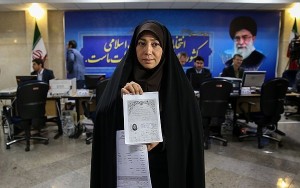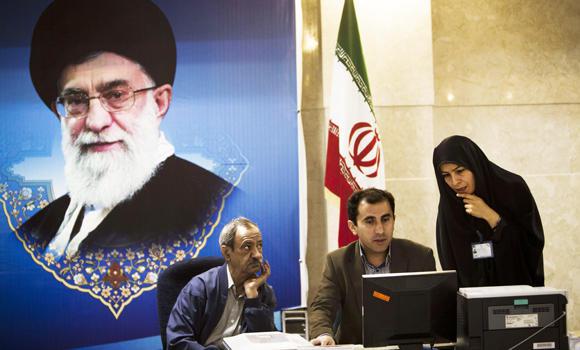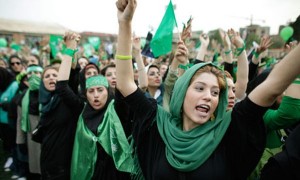Gender bias is commonly practiced in most Islamic countries and recently Iran set a new example in this category by denying their women the rights to contend in the presidential election, which is scheduled to take place on 14 June. This decision by the constitutional body of Iran only reflects that the government of this Islamic republic is still not able to accept women as equally as men even in terms of social rights. Mohammad Yazdi, one of the clerical members of Iran’s Guardian Council, said that the constitution of the Islamic fundamentalist nation has yet again disallowed the women to run for the presidential election. It has been reported that almost thirty women registered themselves as presidential candidates although there had been only a little hope that they will be allowed to run for the election. The Guardian Council, which mostly dictates the fundamental rights for the people of Iran, comprises mainly of clerics and therefore, dictates their laws according to Islamic credentials that seem absolutely pointless. Moreover, considering their biasness against women, the Guardian Council seems to be more interested in preventing the women population from enjoying the same rights and privileges as their male counterparts.  The ambiguity in the Iranian constitution regarding the rights of women in the political field has remained a hot topic of debate in this country but the recent interpretation has even ended the debate. According to Mr. Yazdi, the law of Iran cannot allow women to register themselves as candidates for presidential elections and that a woman cannot be allowed on the ballot. Although, women in Iran can serve as lawmakers and can even stand for parliamentary elections but standing for presidential elections is simply not acceptable according to the Guardian Council of the Islamic Republic
The ambiguity in the Iranian constitution regarding the rights of women in the political field has remained a hot topic of debate in this country but the recent interpretation has even ended the debate. According to Mr. Yazdi, the law of Iran cannot allow women to register themselves as candidates for presidential elections and that a woman cannot be allowed on the ballot. Although, women in Iran can serve as lawmakers and can even stand for parliamentary elections but standing for presidential elections is simply not acceptable according to the Guardian Council of the Islamic Republic
Under the constitution, the current president of Iran, Mahmoud Ahmadinejad can no longer file himself as presidential candidate for the third term and up until now, almost 686people have already registered for presidential candidacy. However, the final list for the candidates is yet to be announced but it is apparent that only a few names will eventually end up on the ballot. In the last election of 2009, out of 475 registered candidates the Guardian Council, only approved four candidates to appear on the ballot and so, this year also they are expected to follow their previous examples. Moreover, being an Islamic fundamentalist country, Iran not only suppresses the rights of women but also any reformist candidates who oppose certain laws dictated by the Council. Therefore, citing the previous examples and considering the strict Islamic codes that the nation follows, it can be said that in order to receive the equality status, the Iranian women still needs to go a long way.




